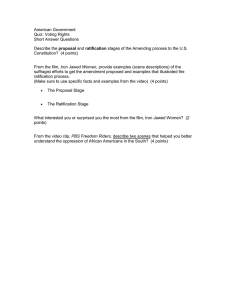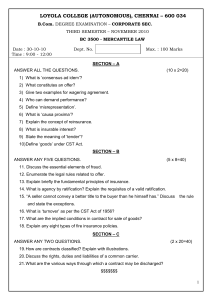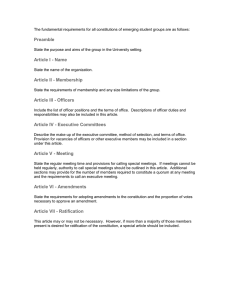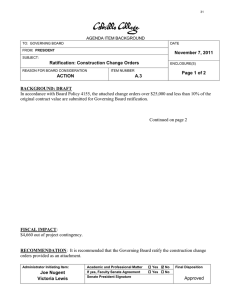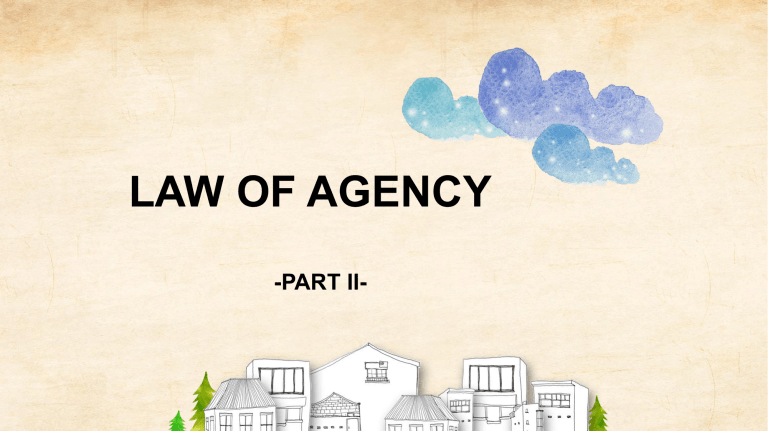
LAW OF AGENCY -PART II- Contents 01 Definition and types of Agents 02 Creation of Agency 03 Duties of Principal and Agents 04 Termination of Agency Agency by Ratification Conditions: i.An agent duly appointed but has exceeded his authority ii. A person who has no authority to act for the principal but has acted as if he has the authority S 149 CA- The Principal may accept or reject the contract made S 150 CA- Ratification may be expressed or implied Hatman v Hornsby: “the approval by act, word or conduct of that which was attempted of accomplishment, but was improperly or unauthorizedly performed in the first instance” A Contract can only be ratified under the following circumstances 1. The act/contract must be unauthorized 2. Unauthorized act recognized by law 3. The Agent at the time of contract must expressly act as Agent for th e PrincipalS 149 CA Case: Keighley Maxted & Co. v Durant In this situation- a person without the authorization of P enters into a contract with a third party on behalf of the P. Ratification occurs when the P expressly accepts the contra ct later. Effect- Actions of agent is valid 4. Principal must be in existence and capable of being ascertained, when contract is made-s 151 Case: Kelner v Baxter 5.The Principal must have contractual capacity at the time of ratification- S 13 6. The Principal must have full knowledge of all material facts 7. The whole contract/ act must be ratified- S 152 8. The ratification must not injure a third party- S 153 Agency by Necessity Principal/Agent relationship created despite there being no agreement. Due to emergency-one person acts to protect the interest of another 3 conditions to be met: 1. It is impossible for the A to get the P’s instructions Great Northern Railway v Swaffield Springer v Great Western Railway 2. The A’s action is necessary to prevent loss to the Principal. 3. A acted in good faith Necessity arises when act is in genuine interest of the Principal Agency by Estoppel Also known as ‘agency by holding out’ Occurs when there is no actual Principal/agent relationship, but action by Principal makes a third party thinks that is one. A person is estopped (stopped)/ precluded from denying th e existence of that person’s authority to act on his behalf. P is bound by act of so called “agent”. THANK YOU
